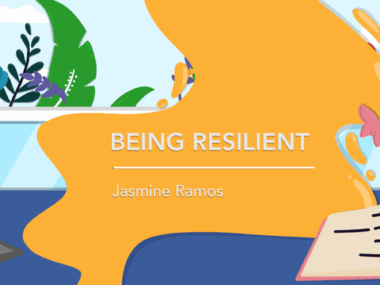I’m learning nonattachment in my course on world literature
Sometimes the most treasured words come from unexpected places
Written by |

Words always come to me when I need them. Lines by Ada Limón, Anne Boyer, and Marie Howe act as life preservers, guiding me back to my center. When life gets tough, I always find myself at the feet of Julian of Norwich. “All shall be well,” she says, and I say it with her, repeating the words, hoping to make them true. “All shall be well, and all manner of thing shall be well.”
Of course, it’s not just poetry I gravitate toward. I still remember watching “Star Wars: The Force Awakens” for the first time and being stunned to silence when the main character is told, “The belonging you seek is not behind you. It is ahead.” It’s a perfectly mundane line, something you’d expect from a stale fortune cookie, but it entered my life at just the right time, when the belonging I sought really was ahead.
Books, too, find me when I need them. It’s become what I would call a pattern. Poems, stories, lyrical refrains — they shape my life in the same way SMA does. Like the trinkets that birds gather, they are shiny little things that catch my attention and beg to be taken home.
It’s no surprise, then, that my third semester in school was accompanied by its own special words. I’m taking public speaking (gross; required to graduate) and a world literature course this fall. I don’t read much nowadays, and when I do, it’s almost always in service of my professional writing, so I’ve enjoyed having an excuse to read outside my chosen genre. Memoirs? Yes. Literary fiction? Love it! An essay on impermanence by the early Kamakura writer Kamo no Chōmei? Unexpected, but I’ll try anything once.
“Hōjōki,” translated as “An Account of My Hut” or “The Ten Foot Square Hut,” is a short piece of nonfiction written in March 1212. In discussing the various disasters that befell the capital city of Kyoto, Chōmei emphasizes impermanence and nonattachment. “Ceaselessly the river flows,” Chōmei writes, “and yet the water is never the same, while in the still pools the shifting foam gathers and is gone, never staying for a moment. Even so is man and his habitation.”
What an opening line.
Chōmei explains that he withdrew from society in his middle age to become a hermit in the mountains. Having no immediate family, he builds for himself a 10-foot hut made of raw materials. He lives off the land. He relies solely on himself. It is a difficult life, but a peaceful one, too. While I’m not built for the solitude of Chōmei’s existence, I find myself enraptured by the ease with which he describes his life.
“In this little impermanent hut of mine, all is calm, and there is nothing to fear,” Chōmei writes. “If one knows himself and knows what the world is, he will merely wish for quiet and be pleased when he has nothing to grieve about, wanting nothing and caring for nobody.”
I can’t imagine wanting nothing; my heart is too big to care for nobody. But grieving nothing? Sign me up.
With no servants to attend to him, Chōmei has no choice but to live in harmony with his body: “[Since] the mind knows the fatigue of the body, it works it when it is vigorous and allows it to rest when it is tired.” I have such a difficult relationship with my body that I can hardly imagine taking each day as it comes. I have too much I want to do with my life. I can’t afford to bum around, as it were, because the weather has my head feeling like an overinflated balloon.
But I can’t deny that Chōmei seems to have things figured out. He feels neither fear nor resentment. He “commits his life to fate” with no desire to live or die. There is nothing to hinder his pleasure. As a pathological people pleaser, with a tendency toward burnout, I long for Chōmei’s peace. I am tired all the time. I would do anything to experience just a sliver of his contentment — short of living alone in the mountains, of course.
What does this mean for me going forward? I’m not sure. But one thing is certain: I have some new words to add to my commonplace book. Chōmei will now live in perpetuity next to Julian of Norwich.
“All is calm, and there is nothing to fear.”
Thanks for reading! You can follow me on Instagram and Threads, subscribe to my newsletter, or check out my website.
Note: SMA News Today is strictly a news and information website about the disease. It does not provide medical advice, diagnosis, or treatment. This content is not intended to be a substitute for professional medical advice, diagnosis, or treatment. Always seek the advice of your physician or other qualified health provider with any questions you may have regarding a medical condition. Never disregard professional medical advice or delay in seeking it because of something you have read on this website. The opinions expressed in this column are not those of SMA News Today or its parent company, Bionews, and are intended to spark discussion about issues pertaining to spinal muscular atrophy.








Leave a comment
Fill in the required fields to post. Your email address will not be published.